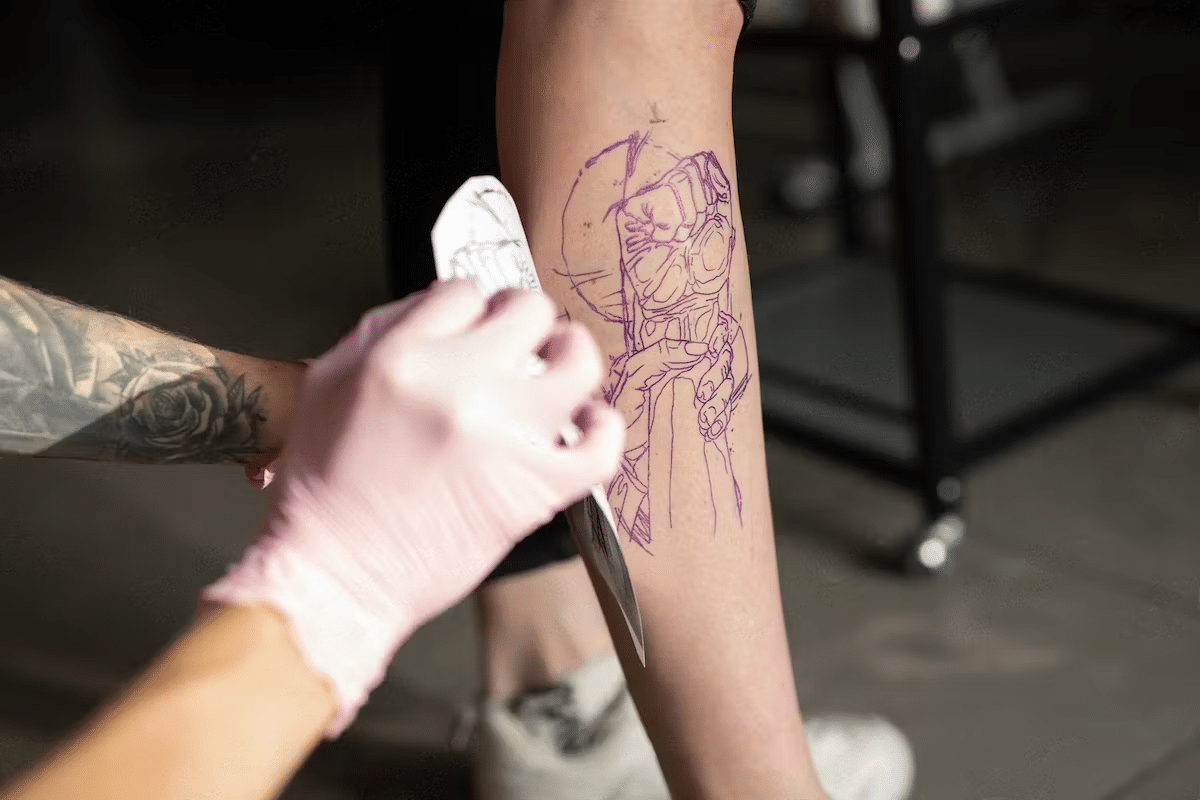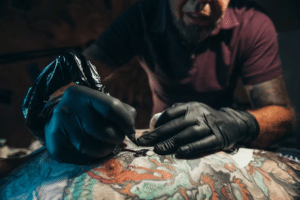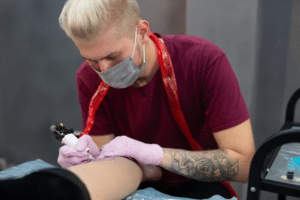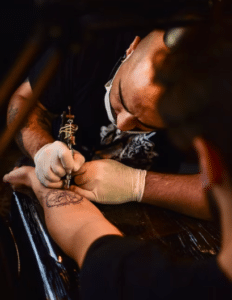Unlock Your Creative Potential To Become A UK Tattoo Artist
Are you interested in becoming a tattoo artist in the UK? Have you ever wondered what it takes to become a professional tattoo artist? Working as a tattoo artist can be an exciting and rewarding career.

If you have an eye for art, the dedication and drive to complete a training program, and the ambition to make your mark in the industry, then this article is for you. We will explore the steps to becoming a highly sought-after tattoo artist in the UK.
The Cost Of Being A Tattoo Artist
If you’re considering a career as a tattoo artist in the UK, one of your first questions will likely be about the cost. While there’s no simple answer to this question, there are a few things you should keep in mind as you plan your path.
First and foremost, becoming a tattoo artist requires skill and training fees, which means investing time and money. You’ll need to attend training courses which can cost between £1,000-£3,000. During this time, you won’t be earning much (if at all) – so it’s important to budget accordingly.
There are also additional costs associated with setting up your studio after completing your apprenticeship. This might include buying equipment like tattoo machines and needles and licensing fees for operating a business in your local area. These can cost anywhere from £500 to £2,000, depending on the quality of equipment you choose.
Licensing Requirements For Aspiring Tattoo Artists
The UK has specific requirements to be met before becoming a tattoo artist. A tattooing licence is mandatory for anyone who intends to practise body art and work as a professional tattoo artist in England, Scotland, Wales or Northern Ireland. Licensing ensures tattoo artists meet certain requirements and standards for safely carrying out this art form.
Also, you must be at least 18 years old to work as a tattoo artist in the UK legally.
In line with this, we have listed other requirements that may be required depending on your location:
Prepare A Design Portfolio
A well-crafted portfolio showcases your skills and experience, giving potential clients a glimpse into your unique style and creative abilities. However, creating an effective tattoo portfolio requires careful consideration of certain requirements.
Selecting high-quality images showcasing your best work is crucial. This means taking clear photos of your tattoos with good lighting and framing. Include a diverse range of designs demonstrating your versatility as an artist.
Another important aspect to consider when designing your portfolio is organisation. Grouping similar styles or themes can help make it easier for clients to navigate through the portfolio and find what they are looking for. Moreover, including written descriptions or explanations about each design may help provide context and add personality to the pieces.
Health And Safety Regulations Certificate
One of the most important requirements for a tattoo artist is proper training and certification.
This means completing a course on hygiene and infection control and receiving accreditation from a recognised body such as the Tattoo and Piercing Industry Union (TPIU) or National Tattoo Association (NTA). This ensures they possess the knowledge necessary to maintain clean and safe work environments.
In addition, health authorities set specific guidelines regarding sanitation practices, equipment maintenance, and disposal of waste materials. Tattoo artists must follow these protocols closely to prevent the potential transmission of infections or diseases between clients.
Get Insurance
This is to ensure that you and the artist are protected in case of mishaps during the tattooing process.
Tattoo artists should have public liability insurance. This type of insurance covers any accidental damage or injury caused to third parties due to their work. For example, if a customer slips on a wet floor in the studio and injures themselves, public liability insurance will cover the costs of any legal action against the artist.
Also, tattoo artists need to have professional indemnity insurance. This protects them if they make a mistake during your tattoo’s design or application process, which leads to an injury or dissatisfaction on your part.
Expected Income Of A Tattoo Artist In The UK
If you have a passion for art and a love for tattoos, becoming a tattoo artist might be your perfect career path. A tattoo artist creates permanent designs on people’s skin using ink and needles. It can be an incredibly rewarding field that allows you to express your creativity while making others happy. But how much can you earn as a tattoo artist in the UK?
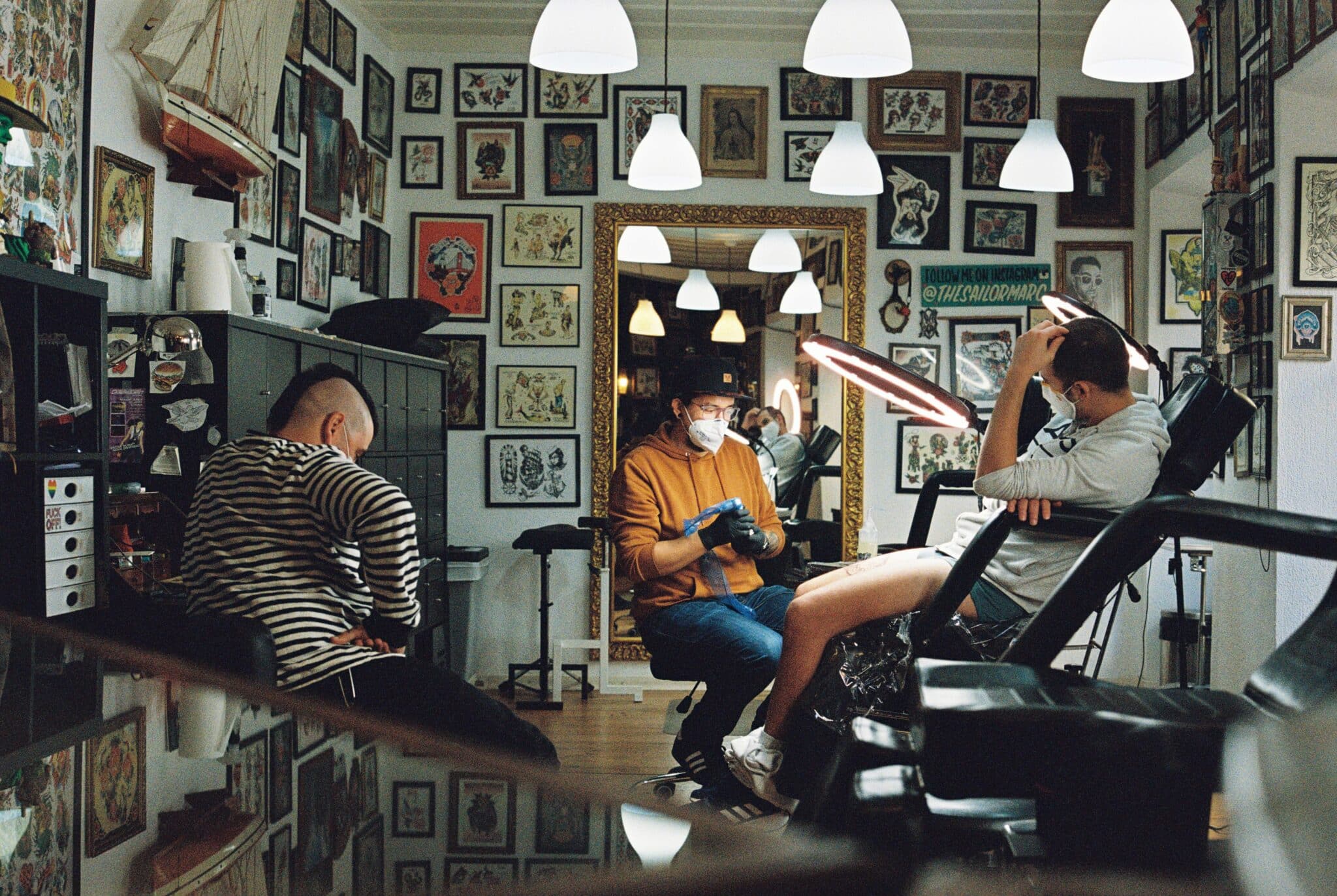
A tattoo artist’s money in the UK can vary greatly depending on several factors, such as their experience level, location, and reputation. On average, however, a beginner or apprentice tattoo artist can expect to make around £15,000-£20,000 per year. As they gain more experience and build up their portfolio of work, they may be able to increase their rates and earn upwards of £30,000-£40,000 per year.
Conclusion
In conclusion, becoming a tattoo artist in the UK is challenging yet rewarding. It requires dedication and determination to become certified, gain experience, and build a client base.
Additionally, it is important to consider one’s safety, and the customer’s when doing tattoos. However, with the proper knowledge and understanding of the industry, anyone can become a successful tattoo artist in the UK. Take your time to research and learn everything you need to know before taking your first steps into this art form.
FAQs
Can people learn how to be tattoo artists online?
While online courses for learning how to be a tattoo artist are available, they are not as effective as real-life ones. So, it is almost impossible to learn how to be a tattoo artist virtually as it requires practical skills. People who want to become tattoo artists must undergo training and obtain their certification.
How many hours are needed to be an active tattoo artist in the UK?
The average tattoo artist in the UK works about 50 hours per week. Although it may vary depending on the store’s open hours and the artist’s availability.
How is a gallery or shop set up for tattooing?
Setting up a gallery or shop for tattooing is a complex process that requires careful consideration and planning.
First, it is important to have knowledgeable staff on hand who can answer questions about the process and provide guidance when needed.
The second step is to create an atmosphere that will attract customers. This includes selecting artwork that reflects your style of tattooing, displaying it in an appealing way, and providing comfortable seating for those waiting for their appointment.
Finally, you should ensure that all necessary paperwork is in order before opening the gallery or shop.

